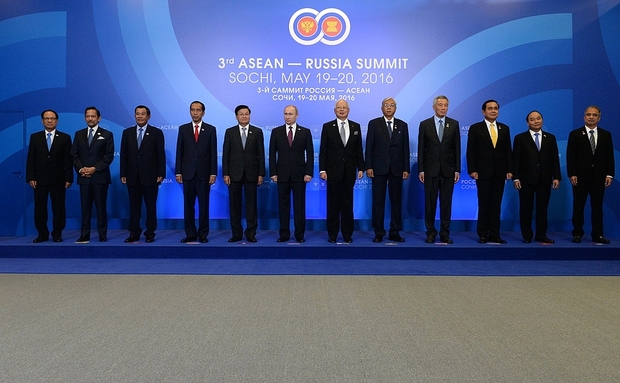Results of Russian-Asian cooperation discussed in Singapore
Russia announced the ''turn to the East'' six years ago. The pivot to Asia has uncertain results: Russian trade with the Association of Southeast Asian Nations (ASEAN) has rosen modestly. Nevertheless, some sectors, like agriculture and tourism, look better than others. Russia is genuinely interested in growing its links to the region, stated a Russian businessman in Singapore.
According to The Straits Times, some 50 academics and experts took part in a conference on Asia-Russia relations in Singapore on 13-14 December. They discussed the results and possibilities of the deepening relationship between Russia and Asia. In 2010, Vladimir Putin announced that Russia would ''turn East'' and ramp up engagement with Asia (the following year, Barak Obama declared the same intention of the Unites States).
However, Russia's trade with ASEAN showed only a modest increase from 1,4% in 2013 to 2,5% last year. It is still overshadowed by trade with the European Union and Asia-Pacific Economic Cooperation countries. Many of Russian businessmen still look towards Europe and the U.S. when thinking of expansion. At the same time, trade levels differ widely, depending on the country. Trade with Indonesia has rose by 20% this year, while trade with Vietnam has increased only by 5%. Agriculture and tourism are among the most promising sectors.

Russia has a number of key advantages that can attract Asian companies, considers Konstantin Kuzovkov, chief financial officer of Russian conglomerate Summa Group. Firstly, there is enough space for industries such as agriculture. Russia's geographic location, the opening of the North Sea route and the projected high-speed rail line between Moscow and Beijing also mean strong connectivity for trans-shipment and logistics, he said.
Dr Lin Yuexin, fellow at the Lee Kuan Yew School of Public Policy, reminded the audience that Russia has turned to Asia at least the second time in the modern history. The first turn happened after the Crimean War of 1853, when Russia was isolated by its Western partners. However, as soon as the boycott ended, the country quickly reoriented towards the West. ''Going forward, a similar situation could occur, in which the current regime of sanctions is loosened, and then we flow back to the way things were, and go back to a very Western-oriented kind of paradigm of engagement,'' said Dr Lin.
Despite the similarity between the historical contexts, today's pivot is of a much more profound and lasting nature, believes Dr Timofey Bordachev, programme director of the Valdai Club. ''Now, there is a shared understanding in Russia that, in order to be a relevant global power of the 21st century, you cannot be not present in the East, not present in the Pacific,'' he added.